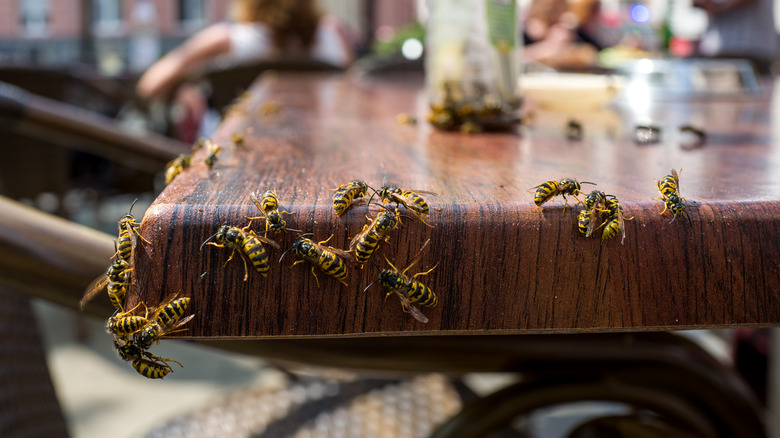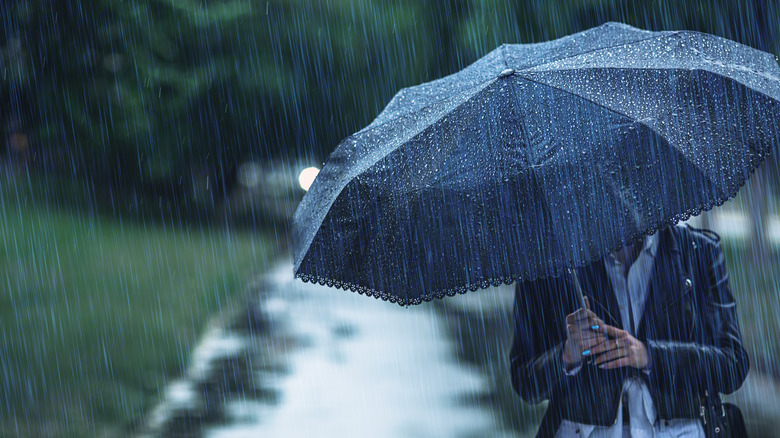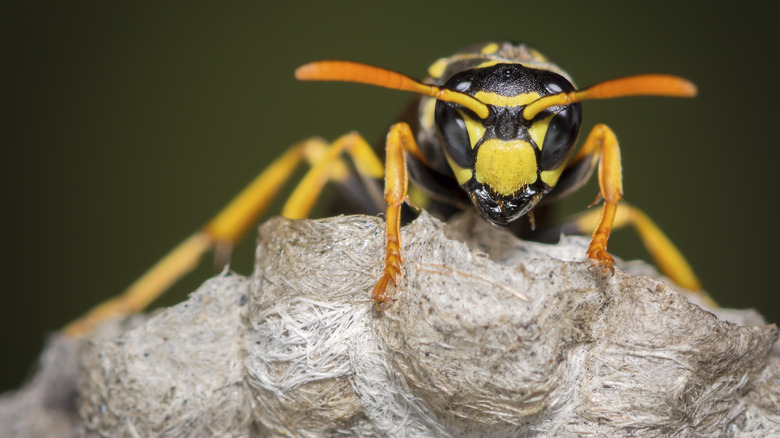Why You May Be Seeing More Wasps This Summer And How To Prepare
Nobody wants to have wasps swarming their backyard while they're trying to get some summer sun, and unfortunately, this year, there may be more of these stinging insects than usual. Several factors, including the weather and annual cicada emergences, can cause various types of wasps to increase in number or be more present in your area.
Throughout June, July, and August, many annual species of cicadas in North America will emerge, which will bring out cicada killer wasps. These wasps create their homes in the ground and the females leave to sting cicadas with their paralyzing venom and take them back to their burrow. These wasps then lay their eggs with the cicadas to provide food for their larvae. Though they may sound terrifying, cicada killer wasps are considered solitary and generally won't sting unless you're bothering them. If you see these big wasps, it's best to ignore them; however, you may have to take steps to deter them if their digging is harming your lawn. Different types of wasps may be more numerous due to other factors. Luckily, there are many ways to keep wasps away from your home.
How the weather may bring more wasps this summer
This year, parts of the United States saw temperatures that were several degrees higher than what's normal throughout the winter and spring. Additionally, some areas had more rain during spring than in other years. These wetter and warmer conditions can allow for more queen wasps to make it through the winter and start building their nests and establishing their colonies earlier. The more queens that emerge in the spring and the sooner they do, the more wasps you're likely to see, since each queen will form her own colony.
Not only did warmer weather help queen wasps to come out sooner this year, but the additional rain in spring can allow these pests to build larger nests. With more access to water, it's easier for these insects to chew up wood to construct their homes. If your region had a warmer winter and spring combined with a good bit of rain, this could be the reason you're seeing more wasps than other summers. For those who are being pestered by these insects, you'll want to look into ways to get rid of wasps that fit your needs.
Preparing to deal with more wasps this summer
While killer cicada wasps and other small, parasitic, or solitary wasps tend to be beneficial, other types, such as paper wasps and yellow jackets, are more of a problem. To repel wasps from your yard before they start building nests, you'll want to ensure your yard isn't providing them with sources of food, water, or shelter. Make sure that your garbage can is sealed and avoid letting sweet drinks sit outside, as this can attract the insects looking for a quick snack. It may also be helpful to relocate hummingbird feeders away from where you like to sit, as wasps will sometimes go after the nectar. Sealing any openings that lead into your home and maintaining a neat yard can also help to keep these insects away from you. Alternatively, you can look into wasp repellents.
For those dealing with cicada killers digging up their lawns or flower beds, water is your new best friend. By soaking the areas where these wasps are destroying your yard, you will encourage them to leave, as they aren't fond of dampness. If wasps are constantly swarming your outdoor space or you have a large nest nearby, it may be best to contact a professional.


